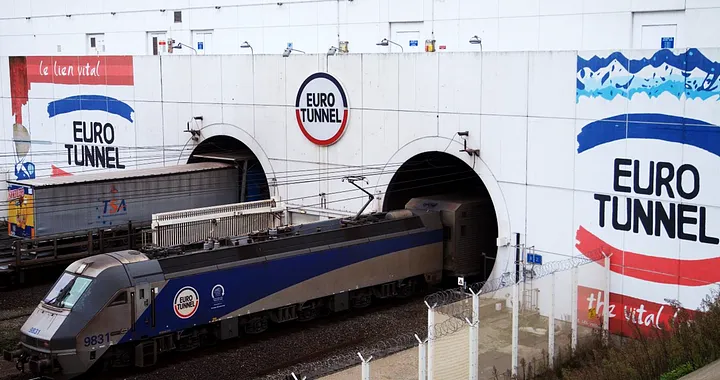Introduction
In a world where safety concerns often dictate our decisions, planning a trip abroad can prompt numerous questions and considerations. For those considering traveling to France via the Eurotunnel, concerns about safety are paramount, especially given the evolving landscape of global travel. This article aims to provide insight into the safety aspects of using the Eurotunnel to travel between the UK and France.
Eurotunnel: A Brief Overview
The Eurotunnel, officially known as the Channel Tunnel, is a remarkable feat of engineering that connects Folkestone in the United Kingdom with Coquelles near Calais in France. This subterranean tunnel stretches approximately 31 miles beneath the English Channel, facilitating passenger and freight transportation between the two countries.
Safety Measures
Stringent Security Protocols: The Eurotunnel maintains rigorous security measures to ensure the safety of passengers and freight. These measures include thorough security checks for vehicles and passengers before boarding the shuttle trains. Trained security personnel conduct inspections, and advanced scanning technology is employed to detect any potential threats.
Emergency Preparedness: Eurotunnel trains are equipped with comprehensive safety features and emergency protocols to handle various situations, including medical emergencies, fire incidents, and mechanical failures. Trained staff are on hand to respond promptly to any emergencies that may arise during the journey.
Health and Hygiene Standards: In light of the ongoing COVID-19 pandemic, Eurotunnel has implemented additional health and hygiene measures to safeguard passengers’ well-being. These measures may include mandatory mask-wearing, enhanced sanitation protocols, and social distancing guidelines to minimize the risk of virus transmission.
Continuous Monitoring and Maintenance: The Eurotunnel undergoes regular maintenance and inspections to ensure its structural integrity and operational safety. Continuous monitoring systems are in place to detect any anomalies or potential hazards, allowing for timely intervention and maintenance.
READ ALSO: Discover Europe’s Hidden Gems: 10 Non-Touristy Places Off the Beaten Path
Traveler Considerations

While Eurotunnel endeavors to maintain high safety standards, travelers should also take certain precautions to enhance their safety and well-being:
Follow Safety Guidelines: Adhere to all safety guidelines and instructions provided by Eurotunnel staff during the journey. This includes wearing masks, maintaining social distancing where applicable, and following any additional health and safety protocols in place.
Travel Insurance: Consider purchasing comprehensive travel insurance that covers medical emergencies, trip cancellations, and other unforeseen events. Having adequate insurance provides peace of mind and financial protection in case of any emergencies or disruptions during your journey.
Stay Informed: Stay updated on travel advisories, safety alerts, and any developments related to your destination and mode of transportation. Eurotunnel communicates relevant information to passengers through various channels, including its website, social media platforms, and mobile app.
Plan Ahead: Plan your journey, including booking tickets, accommodations, and transportation arrangements. Check for any travel restrictions, entry requirements, or quarantine regulations imposed by the authorities in both the UK and France to avoid any last-minute surprises.
Traveling to France via the Eurotunnel is generally considered safe, thanks to the stringent safety measures and protocols implemented by Eurotunnel. However, travelers should remain vigilant, follow safety guidelines, and take necessary precautions to ensure a smooth and secure journey. By staying informed, prepared, and proactive, travelers can enjoy a safe and memorable experience traversing the English Channel via this iconic transportation link.
Frequently Asked Questions: Safe Eurotunnel Travel Guide
Is it safe to travel through the Eurotunnel?
Yes, traveling through the Eurotunnel is generally safe. The Eurotunnel maintains stringent security measures, emergency preparedness protocols, and continuous monitoring to ensure the safety and well-being of passengers and freight.
What security measures are in place at the Eurotunnel?
The Eurotunnel implements thorough security checks for vehicles and passengers before boarding the shuttle trains. Trained security personnel conduct inspections, and advanced scanning technology is employed to detect any potential threats.
How does Eurotunnel handle emergencies?
Eurotunnel trains are equipped with comprehensive safety features and emergency protocols to handle various situations, including medical emergencies, fire incidents, and mechanical failures. Trained staff are on hand to respond promptly to any emergencies that may arise during the journey.
What health and hygiene measures are in place, especially regarding COVID-19?
In response to the COVID-19 pandemic, Eurotunnel has implemented additional health and hygiene measures, including mandatory mask-wearing, enhanced sanitation protocols, and social distancing guidelines. These measures are aimed at minimizing the risk of virus transmission and ensuring passenger safety.
How often is the Eurotunnel maintained?
The Eurotunnel undergoes regular maintenance and inspections to ensure its structural integrity and operational safety. Continuous monitoring systems are in place to detect any anomalies or potential hazards, allowing for timely intervention and maintenance.
What should passengers do to enhance their safety during the journey?
Passengers should follow all safety guidelines and instructions provided by Eurotunnel staff, including wearing masks, maintaining social distancing, and adhering to any additional health and safety protocols. It’s also advisable to stay informed about travel advisories and any relevant updates related to the journey.
Is travel insurance recommended for Eurotunnel journeys?
Yes, it’s advisable to consider purchasing comprehensive travel insurance that covers medical emergencies, trip cancellations, and other unforeseen events. Travel insurance provides peace of mind and financial protection in case of any emergencies or disruptions during the journey.
Where can passengers find updated information about travel advisories and safety alerts?
Passengers can stay updated on travel advisories, safety alerts, and any developments related to their journey by checking Eurotunnel’s website, social media platforms, and mobile app. Eurotunnel communicates relevant information to passengers through these channels to ensure they are well-informed before and during their journey.
Conclusion
Traveling through the Eurotunnel offers a safe and convenient way to cross the English Channel between the UK and France. With stringent security measures, comprehensive emergency protocols, and continuous maintenance efforts, Eurotunnel prioritizes the safety and well-being of its passengers.
Despite the challenges posed by the COVID-19 pandemic, Eurotunnel has implemented additional health and hygiene measures to minimize the risk of virus transmission and ensure a safe travel experience for all passengers. By following safety guidelines, staying informed about travel advisories, and considering travel insurance, passengers can enhance their safety and enjoy a smooth journey through the Eurotunnel.
Whether for leisure or business, traveling via the Eurotunnel remains a popular choice for many, offering speed, efficiency, and peace of mind. With its commitment to safety and customer satisfaction, Eurotunnel continues to be a trusted transportation link connecting the UK and France.
In another related article, Top 5 Craft Beer Destinations in Europe






